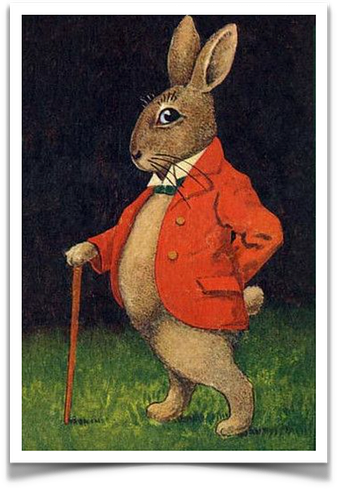Feake Hills, Crooked Waters - Poetry Issue
What to read, what to writeReading poetry is many different things, but what it seems not to be is much of a modern American passtime. We all encounter poetry of one sort or another, whether it’s occasionally in the news like Amanda Gorman’s inaugural poem The Hill We Climb, something we remember from childhood, like reciting “eeny-meeny-miney-moe” to make a choice, or listening to music. There’s some astonishing poetry in rap and hip-hop. But encountering poetry the way people did a century or two ago, by just reading it, doesn’t seem to be what most people do these days. Part of the change is that poetry isn’t taught in primary school the way it once was. Memorizing at least one classic poem was once a standard part of public education, at least so I’ve read. All that was before even my time. Maybe another reason we don’t read poetry as much is that we have so many other options. A lot of poetry was — and is — intended to be heard, not read. That’s how so many ancient stories, like The Iliad, were encountered by most people. Reading wasn’t universally taught in all societies, and oral traditions ruled. They still do, probably — many people (maybe most, but what do I know) prefer an experience like a TV show or performance to reading a book — and if the book is poetry, it can be more difficult to read. Poetry can seem difficult because there are so many different things lumped into what we call “poetry.” John Ashberger wrote poems like To Redouté, reproduced below, and with most of them it’s really difficult to figure out what the heck he’s talking about. I’ve read interviews with Asberger himself; even he didn’t always know for sure what his work was “about.” The whole idea that a piece of writing has to be “about” something doesn’t always apply to poetry. Then there are poems like Spring Rain by Robert Hass (also reproduced below). it’s a perfectly clear description of something — until suddenly it’s a description of something completely different. Some poems are puzzles, either solved or not. There are poetry forms with strict rules, like Haiku: three lines, with syllable counts of 5, 7, and 5, and it should be about something in nature. It’s a sort of puzzle solved by the author, and reading a Haiku is partly appreciating how the author has solved the form. Here is one by the famous master Matsuo Bashō: An old silent pond... A frog jumps into the pond, splash! Silence again. Then there are poetry forms that are just fun. Dr. Seuss (Theodor Geisel) wrote books ostensibly for children, and they’re all rhyming poems, usually with some nonsense words tossed in just for fun. They seem like nonsense at first glance, but really they’re not. Ogden Nash was a poet and quite well known in the mid-20th Century. He wrote mostly short poems meant to be funny: Farewell, farewell, you old rhinoceros, I'll stare at something less prepoceros. If you like that sort of construction, there’s at least one contest for writing Ogden Nash-style poems. And speaking of writing poetry, that’s quite a different area than reading it. There aren’t really any rules about poetry (except for the forms where the rules are the whole idea), so writing poetry can be much easier than reading it. But writing good poetry is something else again. I don’t think you can really tell, if you’re writing poems, whether your work is “good” or not. For one thing, standards change. For another, poetry is such a huge jumble of techniques and forms and styles that there probably isn’t any such thing as a rating that applies to all of it. What works as a rap lyric might not when published in print, and a rhyming children’s book probably won’t get much attention from “serious” writers and critics. But so what. Both reading and writing the occasional poem can be a nice change, and you don’t even have to let anybody know what you’re up to. By the way, the secret key to this issues tale from the forest is Browning, Dickenson, Frost, Guest, Kipling, Malloch, Poe, Silverstein, and Wilcox. The rest is up to you. To Redoutéby John Ashbery To true roses uplifted on the bilious tide of evening To morning-glories dotting the crescent day The oval shape responds: My first is a haunting face In the hanging-down hair. My second is wine: I am a sieve. My only new thing: The penalty of light forever Over the heads of those who were there And back into the night; the cough of the finishing petal. Once approved the magentas must continue, But the bark island sees Into the light. It grieves for what it gives: Tears that streak the dusty firmament. Tales from the ForestOr…you know more poetry than you think you do. Hare was hosting a big pot luck dinner for everyone in the forest. He’d come back from helping with the carrot, onion, and potato harvest at the farm with a big sack of vegetables, and he’d been busy all day cooking different things with them. Otter had donated some fish, and Dog had brought a box of very crunchy things she said were were her favorite. When anybody asked (and everybody did, of course) why they were called “milk bones” without having anything to do with milk or bones, Dog said she had no idea. Raccoon said they were okay, but not her favorite, and Fox liked them pretty well, but nobody else wanted any. Dog said that was fine with her, because then she could have more. Squirrel had been just as busy as Hare, and had brought acorn cookies, acorn pancakes, acorn tarts, and something he called acorn parmesan. Hardly anybody else liked acorns, but the cookies were pretty popular anyway. Ma and Pa Mouse brought a cheese plate they’d put together with help from Masie and Hortense the cows, and Jake and Oliver, the horses who lived on the farm, trotted in pulling an enormous wagon full of hay. Jake said there was a pile of oats on the wagon too, but when he looked he couldn’t find it. Oliver hemmed and hawed, and finally admitted he’d eaten the oats already. “Please forgive me,” said Oliver to Jake. “You were probably saving the oats for breakfast, but they were so delicious…” “Doesn’t bother me,” said Jake, “but have you said exactly that to me before? Or maybe it was someone else? Anyway, it sounded strangely familiar.” “I have that feeling sometimes too,” said Hedgehog. “I don’t know if I’ve really heard something before or if it’s just a weird feeling. It’s hard to know, but I figure that if you can keep your head when everyone about you is blaming you for eating the oats…” “I’m not blaming anybody,” said Jake, “but I’m having that same feeling all over again.” “I’ve had that feeling too,” said Otter, “but not for a really long time. The last time, I think, was many and many a year ago in a kingdom by the sea.” “Now just a minute,” said Jake. “Is everyone playing a prank on me or something?” “I don’t think so,” said Hare. “Why?” “Because every time anybody says anything, I feel like I’ve heard it before,” said Jake. “I wouldn’t worry about it,” said Mole. “Some things just sound the same. Like bells, bells, bells, bells, bells, bells…” “There you go again!” whinnied Jake. “I’m SURE I’ve heard…” “I think it’s probably just in your head,” giggled Otter. “I figure you laugh, and the world laughs with you, y’know?” “This is getting ridiculous,” grumbled Jake to himself. Just then along ambled Bear. “Hello, Bear!” called Jake. “How are you today?” “Oh, not so good,” said Bear. ““I have the measles and the mumps, A gash, a rash and purple bumps. My mouth is wet, my throat is dry; I’m going blind in my right eye.” “Oh my,” said Jake, “Bear, that sounds…hey wait a minute…Bear, are you just kidding?” “I am,” grinned Bear. “Actually I’m fine. Nice to see you, Jake! Hey, look at all the great treats to eat! How do I love these? I’d count the ways, but that would take time away from trying them,” Bear ambled off toward the food. “I’m sure this is some sort of prank,” muttered Jake. “I just can’t quite figure out what’s going on.” Magpie was perched on a branch near Jake and overheard him. “Don’t let it get you down, Jake,” she said. “When you’re up against a trouble, meet it squarely, face to face; lift your chin and set your shoulders; plant your feet and take a brace. “ “You’re doing it too!” yelled Jake. Then he turned to everyone and yelled “if you all don’t quit it right now, I’m leaving!” He spun around and looked at the two paths leading back into the forest. He looked down one as far as he could, to where it bent in the undergrowth. It seemed like a good way to go, but the other path seemed at least as good. It was grassy, as if it hadn’t been worn down by use. “Now JUST a MINUTE!” said Jake. “Now I’m doing it to MYSELF and that’s JUST NOT FAIR.” “Who are you talking to, Jake?” asked Beaver. “Them,” said Jake, waving his tail dismissively around. Beaver looked. There didn’t seem to be anybody anywhere near where Jake had motioned. “Um, Jake,” said Beaver carefully, “why don’t we go over to the hay wagon and have a nice snack?” “Okay, that sounds good,” said Jake. “It’s just so weird, Beaver; every time anybody says anything today it seems like I’ve heard it before.” “That’s probably just a symptom of being hungry,” said Beaver airily. “Nothing to worry about, Jake. A belly full of hay and you’ll be fine.” “I guess so,” said Jake, and started munching. “Is Jake feeling better?” whispered Owl to Beaver. “I think so,” said Beaver. “I think a nice meal will fix him right up.” “That was very nice of you,” said Owl. “If I can stop one mind from breaking, I shall not live in vain,” said Beaver. “Wait, what did you just say?” said Owl. Then everyone turned to the food and started eating. Spring RainBy Robert Hass Now the rain is falling, freshly, in the intervals between sunlight, a Pacific squall started no one knows where, drawn east as the drifts of warm air make a channel; it moves its own way, like water or the mind, and spills this rain passing over. The Sierras will catch it as the last snow flurries before summer, observed only by the wakened marmots at ten thousand feet, and we will come across it again as larkspur and penstemon sprouting along a creek above Sonora Pass next August, where the snowmelt will have trickled into Dead Man’s Creek and the creek spilled into the Stanislaus and the Stanislaus into the San Joaquin and the San Joaquin into the slow salt marshes of the bay. That’s not the end of it: the gray jays of the meadow eat the larkspur seeds, which cannot propagate otherwise. To simulate the process, you have to soak the gathered seeds all night in the acids of coffee and then score them gently with a very sharp knife before you plant them in the garden. You might use what was left of the coffee we drank in Lisa’s kitchen, visiting. There were orange poppies on the table in a clear glass vase, stained near the bottom to the color of sunrise; the unstated theme was the blessedness of gathering and the blessing of dispersal— it made you glad for beauty like that, casual and intense, lasting as long as the poppies last
If you liked this issue of Feake Hills, Crooked Waters, please share it! |
Older messages
The issue with decisions
Thursday, August 4, 2022
Swimming in a sea of choice. Or choosing not to.
The issue with imagining
Sunday, July 31, 2022
Or the reissue with reimagining
The issue without titles
Sunday, July 24, 2022
“When you live in the shadow of insanity, the appearance of another mind that thinks and talks as yours does is something close to a blessed event.” ― Robert Pirsig, Zen and the Art of Motorcycle
The Issue with Games
Sunday, July 17, 2022
We'll have fun, fun, fun, 'til daddy takes the T-bird away
The Issue with Reality
Saturday, July 9, 2022
Life could be a dream…
You Might Also Like
eBook & Paperback • Demystifying Hospice: The Secrets to Navigating End-of-Life Care by Barbara Petersen
Monday, March 3, 2025
Author Spots • Kindle • Paperback Welcome to ContentMo's Book of the Day "Barbara
How Homer Simpson's Comical Gluttony Saved Lives
Monday, March 3, 2025
But not Ozzie Smith's. He's still lost, right?
🧙♂️ Why I Ditched Facebook and Thinkific for Circle (Business Deep Dive)
Monday, March 3, 2025
Plus Chad's $50k WIN ͏ ͏ ͏ ͏ ͏ ͏ ͏ ͏ ͏ ͏ ͏ ͏ ͏ ͏ ͏ ͏ ͏ ͏ ͏ ͏ ͏ ͏ ͏ ͏ ͏ ͏ ͏ ͏ ͏ ͏ ͏ ͏ ͏ ͏ ͏ ͏ ͏ ͏ ͏ ͏ ͏ ͏ ͏ ͏ ͏ ͏ ͏ ͏ ͏ ͏ ͏ ͏ ͏ ͏ ͏ ͏ ͏ ͏ ͏ ͏ ͏ ͏ ͏ ͏ ͏ ͏ ͏ ͏ ͏ ͏ ͏ ͏ ͏ ͏ ͏ ͏ ͏ ͏ ͏ ͏ ͏ ͏ ͏ ͏ ͏ ͏ ͏ ͏
I'd like to buy Stripe shares
Monday, March 3, 2025
Hi all, I'm interested in buying Stripe shares. If you know anyone who's interested in selling I'd love an intro. I'm open to buying direct shares or via an SPV (0/0 structure, no
What GenAI is doing to the Content Quality Bell Curve
Monday, March 3, 2025
Generative AI makes it easy to create mediocre content at scale. That means, most of the web will become mediocre content, and you need to work harder to stand out. ͏ ͏ ͏ ͏ ͏ ͏ ͏ ͏ ͏ ͏ ͏ ͏ ͏ ͏ ͏ ͏ ͏ ͏
mRNA breakthrough for cancer treatment, AI of the week, Commitment
Monday, March 3, 2025
A revolutionary mRNA breakthrough could redefine medicine by making treatments more effective, durable, and precise; AI sees major leaps with emotional speech, video generation, and smarter models; and
• Affordable #KU Kindle Unlimited eBook Promos for Writers •
Monday, March 3, 2025
Affordable KU Book Promos "I'm amazed in this day and age there are still people around who treat you so kindly and go the extra mile when you need assistance. If you have any qualms about
The stuff that matters
Sunday, March 2, 2025
Plus, how to build a content library, get clients from social media, and go viral on Substack. ͏ ͏ ͏ ͏ ͏ ͏ ͏ ͏ ͏ ͏ ͏ ͏ ͏ ͏ ͏ ͏ ͏ ͏ ͏ ͏ ͏ ͏ ͏ ͏ ͏ ͏ ͏ ͏ ͏ ͏ ͏ ͏ ͏ ͏ ͏ ͏ ͏ ͏ ͏ ͏ ͏ ͏ ͏ ͏ ͏ ͏ ͏ ͏ ͏ ͏ ͏ ͏ ͏
Food for Agile Thought #482: No Place to Hide from AI, Cagan’s Vision For Product Teams, Distrust Breeds Distrust
Sunday, March 2, 2025
Also: Product Off-Roadmap; AI for PMs; Why Rewrites Fail; GPT 4.5 ͏ ͏ ͏ ͏ ͏ ͏ ͏ ͏ ͏ ͏ ͏ ͏ ͏ ͏ ͏ ͏ ͏ ͏ ͏ ͏ ͏ ͏ ͏ ͏ ͏ ͏ ͏ ͏ ͏ ͏ ͏ ͏ ͏ ͏ ͏ ͏ ͏ ͏ ͏ ͏ ͏ ͏ ͏ ͏ ͏ ͏ ͏ ͏ ͏ ͏ ͏ ͏ ͏ ͏ ͏ ͏ ͏ ͏ ͏ ͏ ͏ ͏ ͏ ͏ ͏ ͏ ͏ ͏
Pinterest For Authors 📌 30 Days of Book Pins 📌 1 Each Day
Sunday, March 2, 2025
"ContentMo is at the top of my promotions list ... "I'm amazed in this day and age there are still people around who treat you so kindly and go the extra mile when you need assistance. If




